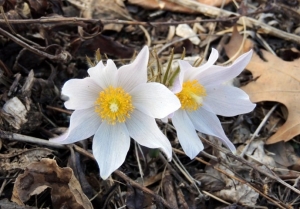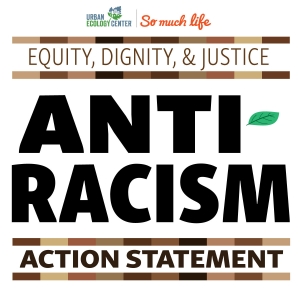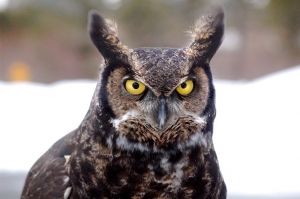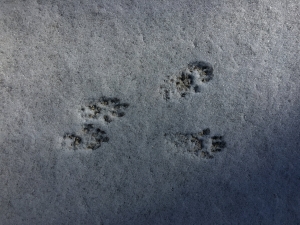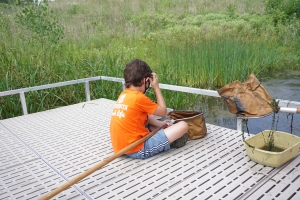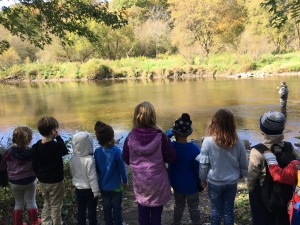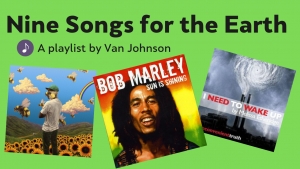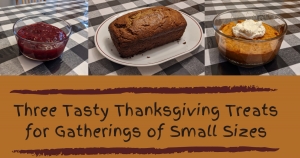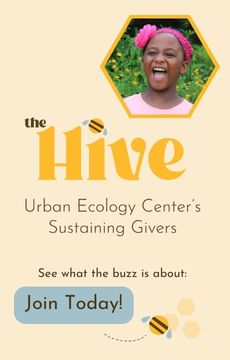

Urban Ecology Center
At the Urban Ecology Center, we connect people in cities to nature and each other. Read more about us here!
Short-lived Spring Wildflowers
Early spring brings us more than just sorely missed warmer temperatures with more daylight. It’s a “goldilocks zone” where the snow has melted but the trees' leaves don’t yet shade the ground. For a short period of time, when conditions are just right, spring ephemerals begin to bloom. Ephemeral - describing something as transitory or lasting for a short period of time - in this case, refers to the curious spring wildflowers we only see briefly each year around this time.
Anti-Racism Glossary
Our Anti-Racism Action Statement addresses serious issues and uses language that may make some readers uncomfortable. These terms can have different meanings to different people. Dismantling racism together requires a shared vocabulary. To make sure we’re all on the same page, we have put together a glossary to help define the words we are using. As these terms have complex meanings, it is difficult to define them with a single definition. Therefore, multiple ideas have been gathered for each term. We hope these resources help provide a clear context for our statement.
The belief that the white race is inherently superior to other races and that white people should have control over people of other races - Merriam Webster
You don’t have to be a “white supremacist” to benefit from or perpetuate white supremacy. “White supremacy is a racist ideology that is based upon the belief that white people are superior in many ways to people of other races and that therefore, white people should be dominant over other races. White supremacy is not just an attitude or a way of thinking. It extends to how systems and institutions are structured to uphold this white dominance.” Layla F. Saad, Me and White Supremacy
Why it matters to our mission: Connecting people in cities to nature and each other means creating equitable opportunities regardless of race. Acknowledging and dismantling white supremacist systems is a critical part of serving our diverse city.
The term was originally coined in 1967: “Racism is both overt and covert. It takes two, closely related forms: individual whites acting against individual blacks, and acts by the total white community against the black community. We call these individual racism and institutional [or systemic] racism. The first consists of overt acts by individuals, which cause death, injury or the violent destruction of property. This type can be recorded by television cameras; it can frequently be observed in the process of commission. The second type is less overt, far more subtle, less identifiable in terms of specific individuals committing the acts. But it is no less destructive of human life. [Institutional racism] originates in the operation of established and respected forces in the society, and thus receives far less public condemnation than the first type.” - Black Power: Politics of Liberation, Stokely Carmichael and Charles V. Hamilton
Wikipedia defines systemic racism as: “Institutional racism, also known as systemic racism, is a form of racism that is embedded as normal practice within society or an organization.”
Systematic racism affects people’s abilities to accumulate wealth. “For centuries, structural racism in the U.S. housing system has contributed to stark and persistent racial disparities in wealth and financial well-being, especially between Black and white households. In fact, these differences are so entrenched that if current trends continue, it could take more than 200 years for the average Black family to accumulate the same amount of wealth as its white counterparts.” - Center for American Progress
The Nature Gap study explains how systemic racism impacts access to nature: “Historically, the United States has systematically segregated and excluded people of color from public lands and other natural places. Black people have experienced segregation from the Civilian Conservation Corps to the National Park System; the nation’s public lands, beaches, and other natural areas have also been venues in which communities of color have been the subject of legalized and institutionalized racism. [...] It also affects visitation to national parks and other public lands and participation in outdoor recreation, as well as causes people of color to feel unwelcome or in danger in nature.” In addition, “The history of public lands in the United States is rooted in the violent dispossession of lands from Native Americans. For centuries, settler-colonists on the North American continent displaced tribes from their ancestral homelands and engaged in the deliberate destruction of vital natural resources—many with economic and cultural significance—as a tool of genocide against the Indigenous population.”
Why it matters to our mission: To connect people in cities to nature and each other, we must recognize the forces of systemic racism that impede those connections for BIPOC so that we can work against them.
Action against racism towards marginalized groups.
Camara Jones makes a great analogy. It is as if we are all on a conveyor belt with society, moving in the same direction of racism. If one were to simply stop walking, or stop performing individualized racist acts, they would still be moving forward on the conveyor belt because of how ingrained racism is in our society. In order to be anti-racist, one must turn around and start walking against the pushes of society. We have to make a conscious effort to act equitably. The full two-minute analogy can be found here: Youtube at 17:16 - 19:43
"To be anti-racist is to think nothing is behaviorally wrong or right -- inferior or superior -- with any of the racial groups. Whenever the antiracist sees individuals behaving positively or negatively, the antiracist sees exactly that: individuals behaving positively or negatively, not representatives of whole races. To be anti racist is to deracialize behavior, to remove the tattooed stereotype from every racialized body. Behavior is something humans do, not races do." - Ibram X. Kendi
Why it matters to our mission: Connecting people in cities to nature and each other requires an anti-racist approach so that our branches and greenspace around the city are safe, accessible, and welcoming to everyone.
“Historical trauma is intergenerational trauma experienced by a specific cultural group that has a history of being systematically oppressed. Historical trauma is cumulative and reverberates across generations. Descendants who have not directly experienced a traumatic event can exhibit the signs and symptoms of trauma, such as depression, fixation on trauma, low self-esteem, anger, and self-destructive behavior.” - Administration for Children and Families
Why it matters to our mission: If we don’t acknowledge historical trauma, we can’t understand why some folks may be uncomfortable in certain spaces. Ignoring historical trauma makes healing impossible and further divides us.
“Just and fair inclusion into a society in which all can participate, prosper, and reach their full potential.” - Policy Link’s “Equity Manifesto”
How is equity different from equality? Equity involves trying to understand and give people what they need to enjoy full, healthy lives. Equality, in contrast, aims to ensure that everyone gets the same things in order to enjoy full, healthy lives. - Annie E. Casey Foundation
“Dignity is a mutual sense of worthiness; my sense of how worthy I am in relation to how worthy others are in my community.” - Ubuntu research and evaluation
“‘Giving to each what [that person] is due.’ …a set of universal principles which guide people in judging what is right and what is wrong [with the purpose of] elevating the dignity and sovereignty of the human person.” - Center for Economic and Social Justice
BIPOC:
Black, Indigenous and People of Color
Equity, Dignity, and Justice at UEC
Hi everyone! I’m Kirsten, one of the Environmental Educators at the UEC. Usually, I’d be here to tell you about the many ways you can connect with nature in your own neighborhood, but this time I’d like to share with you some information about another equally important part of my work at Urban Ecology Center: the Equity, Dignity, and Justice (EDJ) committee.
So far the EDJ committee has largely focused internally, on learning about oppression alongside our fellow staff at the UEC. Now, with the public release of our anti-racism commitments, we felt it’s time to share the history of this work at the UEC and honor the work that many folks have done that led to this point. Que the proverbial slide-show!
Midnight Owls
In the heart of the city, especially in the midst of one of Milwaukee’s classic, bitterly cold winters, it's easy to miss the endless bird songs we took for granted throughout the warmer seasons. But in the absence of those loud, lovely summer songs, we are able to hear the wintery mating calls of area owls that can be difficult to find by sight. Wisconsin’s four most common non-migratory owls are the Northern Saw-whet, Eastern Screech, Barred, and Great Horned Owl.
Family Fun with Snow Tracks
There is certainly no shortage of snow in the Milwaukee area this winter! While this may mean more time spent shoveling and snow-blowing, it also means more opportunities to see the animal tracks left behind by our local critters! Fun family adventures and lasting memories are waiting as close as your backyard or neighborhood parks. All you need is company and warm clothes (and maybe a ruler and camera if you want to do some serious detective work).
Nature: A balm for mental health
A growing body of research confirms what we might have intuitively known all along: it’s good to stop and smell the roses! Research shows that time in nature is good for our mental health. More specifically, an emerging scientific field called ecotherapy has shown a strong connection between time spent in nature and reduced stress, anxiety, and depression1.
We're taking a week off!

In appreciation of the many ways our staff have kept our mission impact going during the pandemic, we are giving all of our staff a paid Wellness Week from January 16th-22nd. That means, with a few exceptions to maintain essential functions and security, all of our staff are taking a well-deserved week off. It takes a lot of coordination to make this happen, but it is worth the effort to give everyone time to step away from their work and take care of themselves.
Change the Narrative with Your Year-End Gift
Young children don’t grow up knowing inequities, they just know the world they see around them. One child may wake up to littered streets, a concrete playground, perhaps a few trees in the median. Another child may wake up on what appears nearly to be a different planet. A lawn and garden outside their door, a playground full of trees and squirrels, and access to safe green spaces just around the corner. Each child is unknowingly receiving messages from the environment about the value of beauty, the value of nature, and even self-worth. These two contrasting worlds exist in some cases less than half a mile apart!
Nine Songs for the Earth
Hey everyone; Van from the Washington Park UEC here. This month, I want to share with you some music that our earth and our climate inspired. Music is one of the most popular mediums to share our ideas and emotions as a human race. This is a list of 9 of my favorite songs about the earth and its people (in no particular order).
Three Tasty Thanksgiving Treats for Gatherings of Small Sizes
The flavors of Thanksgiving are always something to celebrate, even if the holiday looks a little different this year. Family recipes can carry stories from Thanksgivings past, which is especially important this year. If this year is time to make some new memories, gather up your household and try recreating some of these dishes!
These dishes take holiday classics and make simple adjustments to accommodate smaller groups!
Copyright © 2023 The Urban Ecology Center

